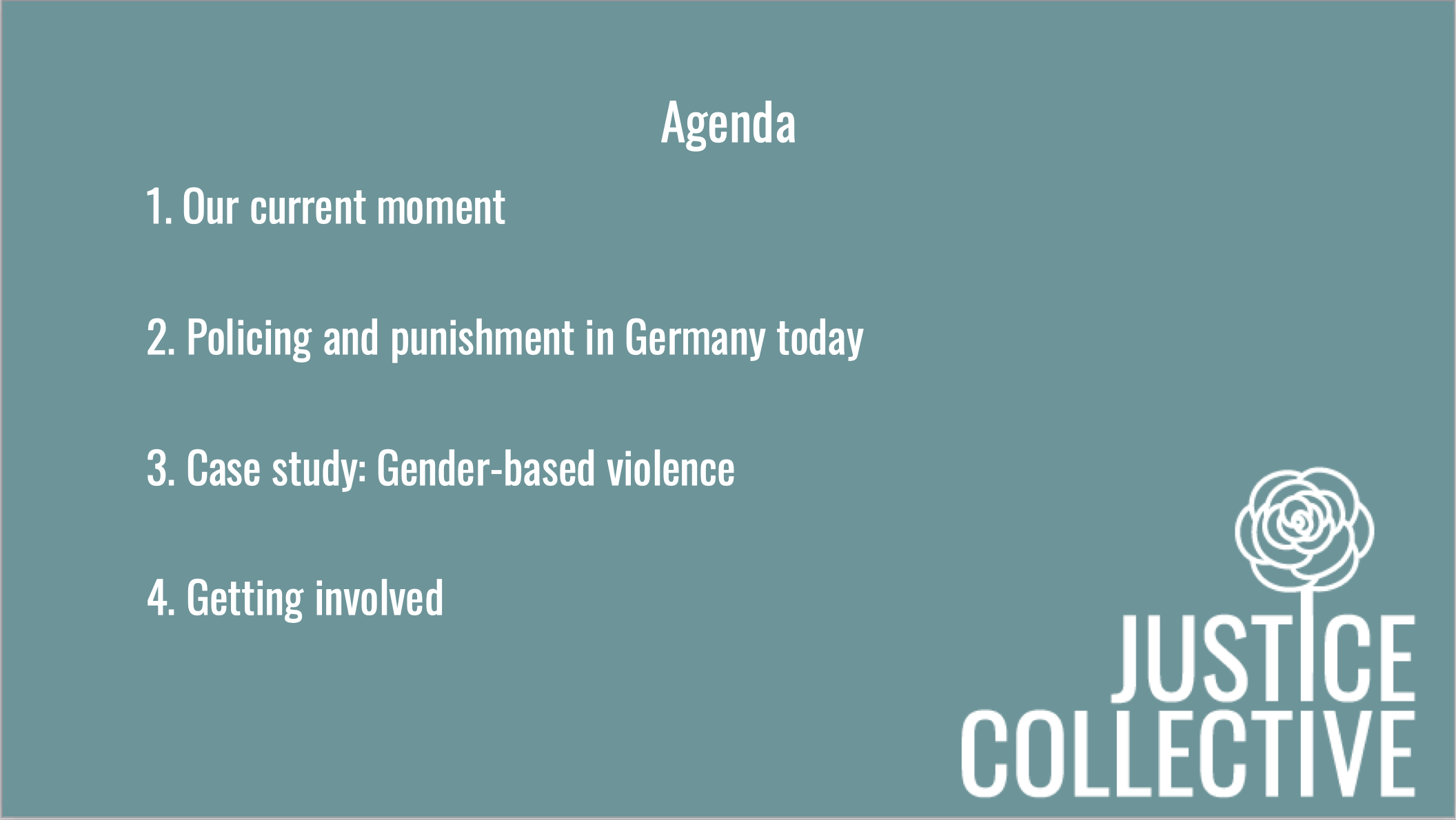Justice Collective Webinar: Policing and Punishment in Germany
Nov. 26, 2021 | 19:00 - 20:30 | RSVP: femfest_mz.wi@web.de
On November 26, 2021 from 19:00 – 20:30, Justice Collective will present an overview of policing and punishment in Germany. The event will be in English. It will later also be available online with German subtitles. We will update this post with the link of the subtitled video.
We will talk about:
Our current moment. The webinar will start with why and how it is that we are discussing this issue: Because of the successes of the Black Lives Matter protests in Germany last summer, and because of decades of anti-racist, migrant, and other organizing that laid the foundations for this moment of increased attention on racism and policing in Germany. We will also speak about ideas of abolition and defunding the police and their relevance in Germany.
Policing and Punishment in Germany. What does policing look like in Germany? And what happens to people after they are policed if they are charged with an offense? Justice Collective will provide an overview of policing and punishment in Germany. We cannot cover everything: We will share a snapshot that shows how punitiveness is pervasive, and how it targets racialized groups, people without resources, and migrants (among other groups). The idea is to provide a starting place for thinking about the problems of punishment in Germany and how these structural injustices may be changed.
Policing. We will look at the ways that racialized people are disproportionately policed, including because of profiling, hotspot policing, and the use of gang databases.
Fines. We will discuss how the inequities created by policing carry into criminal legal systems. We will spend some time on fining because the vast majority of Germany’s criminal sentences are fine sentences. Each year, over 550,000 criminal fines are issued, and about 190,000 are imposed on “non-Germans”, according to government data. A large percentage of fines are imposed for crimes of poverty including fare evasion, low-level theft, and benefits fraud. We will talk about these offenses in more detail, and how often, punishment replaces other social policy such as public benefits and access to public transportation.
Prison: We will talk about just how serious fines are for the people who face them: Non-payment leads to prison, and it is estimated that every year about 50,000 people are jailed for not paying. The data below suggest the number is even higher. At 50,000, this would be over half of all prison admissions a year in Germany—and the number of people unable to pay fines and jailed has been rising steadily over time. People who don’t pay simply can’t afford to.
Source: Day Fines in Germany, in Day Fines in Europe: Assessing Income-based Sanctions in Criminal Justice Systems
We will also briefly discuss other problems of prisons including pretrial and preventative detention, and the increase in sentence lengths in some states.
Courts. We will also talk about how the courts fail on their own terms: They fail to do justice because of procedural issues such that that evidence of actual wrong-doing is often missing and not fully investigated—and because fines are far too often set well above what people can afford. We will also review past studies in Germany that have shown disparities in sentence severity based on people’s race and ethnicity including in fine amounts and time sentenced to prison.
At the end of the event, we will turn to what you can do in response, including by highlighting the important work being done on these issues by many groups in Germany.





